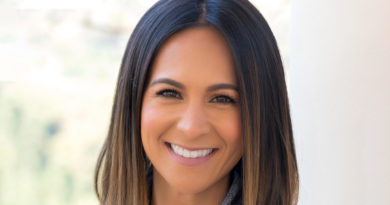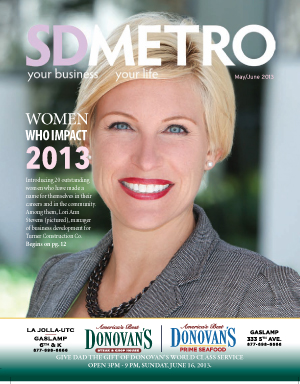J. Lawrence Irving — outstanding trial lawyer, federal judge and now, legal mediator nonpareil
The 75-year-old has handled more than $10 billion in settlements
By Robert Page
A retired former federal judge, once one of the most respected trial lawyers in San Diego, has turned legal mediation into an art form as well as a prosperous third career.
J. Lawrence Irving has become the “go to” mediator in virtually every major securities case in the country.
He represented the University of California Board of Regents in the Enron case, the largest class action case ever settled. The university recovered $30 million of a loss reported at $109.4 million. The amount was net after attorney fees, putting the net recovery at close to 30 percent. Generally, a gross recovery in a class action security case is 5 to 10 percent, inclusive of attorney fees.
“You name the major securities cases and Judge Irving as been there, the one everyone turns to in settling major cases. He is the dominant mediator,” Robert Fairbank, a noted Los Angeles trial attorney, said.
Add up the settlements which Irving has handled and the dollar amount is north of $10 billion! Yet, at 75, he remains active and is currently working on four new cases.
Attorney Doug Butz, a long time friend and former partner, said Judge Irving “has been tremendously generous with his time and resources to many charitable causes in San Diego. He’s been a wonderful benefactor.” Throughout his career, Butz said, Judge Irving, “has been sensational and impeccably honest. He has had a unique ability to bring contentious and difficult parties together when the challenge would have seemed impossible.”
Rare is the federal judge who would give up a lifetime appointment to the bench, but Irving had a philosophical disagreement with the federal mandatory minimum sentencing guidelines, which he believed were unconstitutional and immoral. Having been appointed by President Reagan in 1982, he resigned after 8-1/2 years on Dec.31, 1990.
“If I had remained on the bench I would have had no choice but to follow the law and in good conscience, I could not, so I resigned,” Irving said. The Supreme Court agreed with Irving in 2005 when it ruled that federal judges were no longer bound by mandatory guidelines.
The first case that Irving mediated involved Lincoln Savings & Loan and the so-called Keating Affair, named for the high-flying owner of the bank whom federal investigators charged with looting his bank of millions of dollars while driving it $2.5 billion into debt. The case was settled for $215 million before going to trial.
The Lincoln case was the linchpin for Irving’s mediation and consulting career, with many larger ones with even greater notoriety to follow, including Enron and World Com.
When the UC Regents hired Irving for the Enron case, he had never been a securities consultant. The university was the lead plaintiff, responsible for the entire litigation.
“The university hired me to be totally independent of their lead counsel, Bill Lerach, to review any questions which the university’s regents had about advice given to them about who is going to be sued or, most importantly, when it came time to settle, they wanted me to review the settlements and participate in the settlement process and then advise them as to whether I felt the settlement was fair or not,” Irving said.
In understanding Irving’s major role as the preeminent mediator or consultant in the settlement of securities cases, he had the principal role in nine of the 20 largest settlements of class action cases.
Five of the cases were resolved before Congress in 1995 enacted the Private Securities Litigation Reform Act (PSLRA), which was designed to reduce the number of “frivolous” securities lawsuits filed in federal court.
The Washington Public Power Supply System case was settled for an aggregate of $750 million; Lincoln Savings for $215 million; National Health Labs for $64 million; National Medical Enterprises for $60.75 million and Sensormatic Electronics Corp. for $53.5 million.
The four which Irving handled after the PSLRA came into law were Enron for a total recovery of $7.23 billion; World Com for $6.15 billion; AOL Time Warner for $2.5 billion; and United Health Group for $925 million.
The Enron Case
When Irving got involved in the Enron case, he told the university that he would need help from a securities lawyer, a bankruptcy lawyer and a CPA. The four, including Fairbank, who was the securities lawyer, were Rock Hankin, a CPA and professor at the Anderson School of Business at UCLA, and Kenneth Klee, a Los Angeles attorney and one of the country’s foremost bankruptcy lawyers. They became known as the “Judge Irving Team.”
Irving calls his Enron experience the most incredible legal experience of his lifetime. The lawyer for J.P. Morgan in the case asked Irving to switch hats from his consultant role for UC to mediator, saying they would “waive any conflict, whatsoever, because we trust you, would you please do that?” The UC Regents agreed without hesitation.
In Irving’s words:
“Enron’s executives were running some incredible games. Take a series of e-mails. Hard to imagine that they would have sent them. The company “had to make the numbers” and the only way they could do that was to borrow money from their banks and then claim it as income on their books.
“A bank would buy an ‘asset’ from Enron and then tell Enron that it had to buy it back just after the quarter ended in which the transaction took place. Enron would then declare it as income when it was really a loan. They did it time and time again.
“Enron’s banks were critical participants in its financial maneuvers. In simple terms, they not only planned the robbery, which camouflaged Enron’s financial results, but they also drove the get-away car, with each deal accounted for by the company just as it was designed by the banks.
“Their impact? From October 1998, to November 2001, the banks’ transactions understated Enron’s debt by $14 billion, overstated cash flow by $16 billion and provided $10 billion in fresh capital that cash-starved Enron desperately needed. The banks were Enron’s enablers, disguising loans as trades and designing off-balance sheet parking lots concealed as asset sales, where price risk was eliminated and a lucrative return was guaranteed.”
Enron’s Tier-1 banks — CIBC, Credit Suisse First Boston, Barclays, Citigroup, Deutsche, Royal Bank of Scotland, JPMorgan and Merrill Lynch — used various structured financial schemes, Irving said, to show to the world that Enron was highly profitable.
Irving got to know Jeff Skilling, Enron’s president, and Andrew Fastow, its CFO — both of whom are now in jail — during his time in Houston.
“Fastow said he would cooperate with us on a couple of conditions, one of which was that I had to come and testify or appear at his sentencing and urge the court to lessen his 10-year sentence because of his cooperation with us, which in a federal court is permitted if the defendant cooperates.
“In all of my years that I have been involved in the legal system, as a judge, trial lawyer and mediator, Fastow is one of the most impressive people I have ever seen testify. Smart beyond comprehension and you think, ‘Why?’ I asked him that question and his answer was always one word, it was the ‘culture’ at Enron.”
In the myriad of cases in which Irving has either served as a mediator or consultant, he said companies got into Enron kind of trouble at whatever the scale of dollars involved because of their executives’ own personal demands for grandeur.
“They never have enough. Why would a 50-foot yacht do when you can have a 100-foot yacht? Too much of the time they put self over their company and its shareholders,” Irving said.
The AOL Time Warner Case
The University of California also had a major interest in the AOL Time Warner case. Irving recommended to the Regents that they opt out of the ongoing federal class action to file its own case in state court in April, 2003.
When UC learned that AOL had inflated its stock price prior to its January 2001 merger with Time Warner by misrepresenting its sales, revenues and subscriber numbers, it joined the class action. Its pension and endowment funds, which held significant positions in Time Warner stock prior to the merger, suffered losses when the truth about AOL emerged and the merged company’s stock price dropped from $48 a share at the time of the merger to less than $10 per share by July 2002.
Irving recommended that UC go it alone, leave the class action suit and pursue its case against AOL Time Warner separately. That turned out to be a fortuitous move for the university as its recovery of just over $200 million was estimated to be 24 times the amount that it would have received through the class action case.
At the time of the settlement, James E. Hoist, general counsel of the Regents, said, “Judge Irving has been of great assistance to us and we are delighted his services and outstanding judgment will continue to be available for the benefit of the university.”
“On every tough issue, you consult Judge Irving, “ Fairbank said. “He is the most respected human being, judge and mediator whom I have ever had the privilege of knowing.”
In the Lincoln trial, the judge hearing the case asked Irving to take a seat “as the 13th juror,” sitting next to the jury so he could get a real first-hand look at the opening statements, seeing how both the defendants and the jurors reacted to what they were hearing.
He also mediated a dispute between boxer Mike Tyson and promoter Don King as well as a case between Shirley Temple Black and 20th Century Fox.
During his time on the federal bench in San Diego, Irving said there were 98 defendants in a Columbian cocaine ring case which came before him. Many of the defendants were young kids who had never been in trouble with the law before. Had the mandatory sentencing law been in effect at the time, he would have had to sentence each of them to a 10-year minimum mandatory and a six-year minimum release time. They all would have had to go to prison for six years.
“Back then you could give them what was called a split sentence. I suspended all but 90 days and told them that if they ever reappeared in court that I would have to impose the mandatory sentence. Not one of those kids ever came back into court,” Irving said.
He has also had some very interesting San Diego cases while serving on the federal bench, including the one involving J. David Dominelli. But he also heard one involving John DeLorean and his lawyer, Howard Weissman. DeLorean had given Weissman his property in Pauma Valley for his fee in a cocaine case involving DeLorean. DeLorean was acquitted in the case, which put DeLorean in bankruptcy and the bankruptcy trustee sued DeLorean and Weissman to get the property back. Irving ruled against it.
The judge also had a case in which singer Wayne Newton sued NBC for defamation. The case was in Las Vegas but the judge who was to hear it had been indicted and kicked off the federal bench. By the time the trial was to start, Irving was under U.S. protection (because of threats) and in order for him to try the case, a special courtroom was going to have to be built. Irving said no thanks and recused himself.
Chuck Muncie, a former San Diego Chargers running back, appeared in Irving’s court on cocaine charges. He went to prison for it.
Richard Silverman, who was married to Susan Golding, who later became mayor of San Diego, was convicted by a jury and Irving sentenced him to 30 months. Silverman was caught in a wiretap.
Despite all of the fame and attention that his marvelous legal career has bestowed on Irving, he said he is most proud of his family. He and his wife, Fran, have been married 52 years, live in Coronado and have two sons, Craig and Scott, and — spoken like a true grandfather — “eight perfect grandchildren.”
Scott is a law enforcement officer in Seattle and Craig is a partner in the firm of Irving Hughes in San Diego.
Carla Scott, who has been Irving’s legal assistant for 46 years, said working for the judge “was the best thing that ever happened to me. I could not have found a more caring, considerate and wonderful boss.”
Irving holds both undergraduate and law degrees from the University of Southern California and started his law career in San Diego at Higgs, Fletcher & Mack before founding his own firms.
He has mediated or consulted on more than 60 cases in courts ranging from San Diego and Los Angeles to across the country.
He is a Fellow of the American College of Trial Lawyers, American Bar Foundation and chaired judicial screening committees for Gov. Pete Wilson and Sen. Barbara Boxer.



